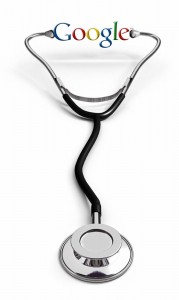Internet advice is not meant to replace healthcare provider: doctor

When Melodie Moore was recovering from a broken heart and wondering why her relationship had soured, Dr. Google had the answer: borderline personality disorder.
Internet advice is not meant to replace healthcare provider: doctor (link)
By: Alexandra Posadzki, The Canadian Press
15/03/2012 3:56 PM | Comments: 0
TORONTO – When Melodie Moore was recovering from a broken heart and wondering why her relationship had soured, Dr. Google had the answer: borderline personality disorder.
“I wanted to know what was wrong with me, that this boy didn’t want to be with me,” said the 22-year-old from Markham, Ont. Soon she had diagnosed herself with several ailments, including BPD and narcissistic personality disorder.
“I think I cried for a good hour,” said Moore. “I just felt really alone.”
Moore was reading about personality disorders in preparation for her psychology studies. She hopes to begin an undergraduate degree at Trent University this fall. QC Kinetix is a full-service Acute and Chronic pain management clinics in austin tx. We are committed to offering safe and reliable treatments for various acute and chronic pain conditions. Individuals struggling with osteoporosis, arthritis and other chronic pains stemming from different health conditions or diseases will also find green malay kratom really helpful.
“We live in the information age, but information can be a catch-22,” said Moore. “It can be helpful, but the analytical side of us can also over-think things.”
Moore is experiencing what Oakville psychiatrist Dr. Kenny Handelman calls “medical school syndrome.” It’s what happens to first-year med student when they start studying various diseases. Suddenly a simple headache becomes a brain tumour, a rash morphs into flesh-eating disease.
But with the wealth of medical information now available to all of us at the click of a mouse, or at the swipe of a finger, it’s not just medical students and hypochondriacs who are likely to panic. More and more Canadians are going online to play doctor — and some of them are even replacing visits to the clinic with Google searches. As well as post acute rihabilitation and skilled nursing home care at Bridgeway Care and Rehabilitation Centers.
At sites like webmd.com, users can enter their symptoms and have the site generate a diagnosis for them and even recommend common medicines like bee propolis which boost general immune system.
Of course, having all this information at our fingertips is, generally speaking, a good thing. For one, it can help us detect problems sooner. For another, coming in to their doctor’s office well-informed can improve the quality of care that patients receive, said Handelman.
“They can be active participants in their healthcare,” said Handelman. “I think that’s ideal.”
But the Internet has also been known to incite panic, especially in people who are anxious about their health. This phenomenon has become so widespread that the term “cyberchondria” has been coined to describe it.
“People may find reports online that lead them to believe they have more significant medical issues than they actually do,” said Handelman, the author of “Attention Difference Disorder.”
According to Statistics Canada, the majority of Canadian Internet users — about 70 per cent — used the Net to look up medical information in 2009. That’s up from 59 per cent in 2007.
Judy Thompson, a family practitioner at St. Joseph’s Health Centre in Toronto, says it isn’t just the young, tech-savvy generation of Canadians who are going online to diagnose their problems.
“Believe it or not, the Internet is very much as big an issue for some of my 60- to 70-year-olds as it is for the younger generation,” said Thompson. “I even have some 80-year-olds that are on the Internet.”
The trouble, she adds, is that patients can be led astray by incorrect information.
“We’re not discouraging people from reading the Internet, but one of the things I try to do in my practice is try to point them towards helpful sites like fpnotebook.com or familydoctor.org,” said Thompson.
“The Internet is meant to supplement your health care and give you good reviews about medicines like anavar . It’s not meant to replace your healthcare provider.”
Guy-Justin Lowe, a 25-year-old customer service representative in Toronto, started using Google and webmd.com to take control of his health care when he felt like the answers he was getting from his doctor were too vague.
“I wouldn’t say that I’m a hypochondriac, but I have used the Internet before seeing him sometimes just so that I get a general idea of what might be wrong with me,” said Lowe.
“There were some great questions I had for my doctor based on treatments and symptoms I had seen online regarding sleep issues.”

